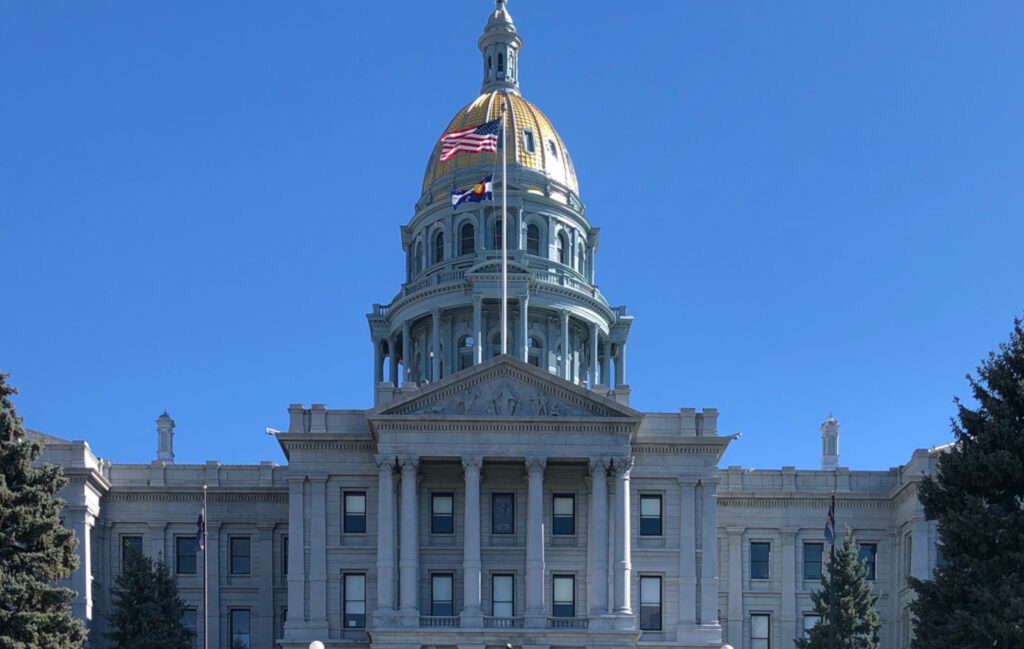By Jeffrey A. Roberts
CFOIC Executive Director
Nearly six years after then-Gov. John Hickenlooper vetoed a bill to seal autopsy reports on minors, Colorado’s county coroners are again trying to restrict public access to those records.
“History shows that bringing tragedies to the public’s attention is the greatest catalyst for public policy change,” Hickenlooper wrote in a letter explaining why he vetoed Senate Bill 18-223. “Transparency can lead to enhanced government protections, greater public and private resources, and heightened public understanding and demand for change.”

But the coroners’ association argued then, and continues to argue, that legislation is necessary to protect the privacy of families of children who have died.
Under current law, autopsy reports are specifically excluded from an exemption for medical records in the Colorado Open Records Act. An autopsy report on a homicide victim may be withheld from a requester only under the legal procedure specified in CORA for denying access based on “substantial injury to the public interest.” A coroner must apply to the district court for an order authorizing the withholding of an autopsy report under that standard.
House Bill 24-1244, introduced this week by Reps. Ty Winter, R-Trinidad, and Marc Snyder, D-Manitou Springs, would make autopsy reports prepared in connection with the death of anyone under 18 confidential. They could be disclosed only to a parent, legal guardian, law enforcement agency and certain other parties and agencies designated in the bill.
County coroners, however, would be required to release certain information pertaining to the death of a minor, if someone makes a request, but not the minor’s name: 1) cause of death; 2) time, place and manner of death; and 3) age, gender and race or ethnicity of the deceased minor.
To obtain a copy of the autopsy report, a journalist or any other person would have to petition a district court and prove to a judge that public disclosure of the report “substantially outweighs any harm to the privacy interests of the deceased and the members of the family of the deceased” and that the sought-after information is not otherwise publicly available.
This would reverse a presumption of openness that has existed in the law for many years.
The Colorado Freedom of Information Coalition asked Hickenlooper to veto the 2018 bill because “there is simply no pressing need for the drastically overbroad sealing of public records this bill would effect. The cost to our society from losing access to information that sheds light on a wide variety of government offices greatly outweighs the bill’s marginal (if any benefit) to the public.”
CFOIC’s letter highlighted investigative reporting that used public autopsy reports to help show deficiencies in Colorado’s child protection system, with some of the reports leading to reforms. “The child welfare system needs ongoing scrutiny,” we wrote.
Kevin Vaughan, a 9NEWS investigative reporter and member of CFOIC’s board of directors, participated in recent discussions with the coroners about their proposal.
“The death of any child in an unimaginable tragedy, and reporters must take great care in their work to avoid inflicting additional pain on a grieving family. That said, the autopsy reports of children provide an important method of public accountability in many traumatic, violent and unexplained deaths, helping to shine the light on systemic failures that require attention,” he wrote in an email.
“One example is the June 2022 death of an 8-year-old boy named Dametrious Wilson, who was repeatedly beaten. In the year before he died, he missed 60 days of school — and teachers reported concerns that he was being abused to Denver’s human services hotline. Those calls were screened out without any follow-up.”
Hickenlooper’s veto was not done “lightly,” the governor wrote in 2018, acknowledging the bill sponsors’ “desire to protect families of deceased children from continued pain.” But he was persuaded “that sunshine on uncomfortable and painful topics such as youth deaths can lead to more positive outcomes for other youths, stemming from how we collectively react to the knowledge of youth deaths.”
“An informed public has societal benefits for all at-risk children, present and future.”
Follow the Colorado Freedom of Information Coalition on Twitter @CoFOIC. Like CFOIC’s Facebook page. Do you appreciate the information and resources provided by CFOIC? Please consider making a tax-deductible donation.




